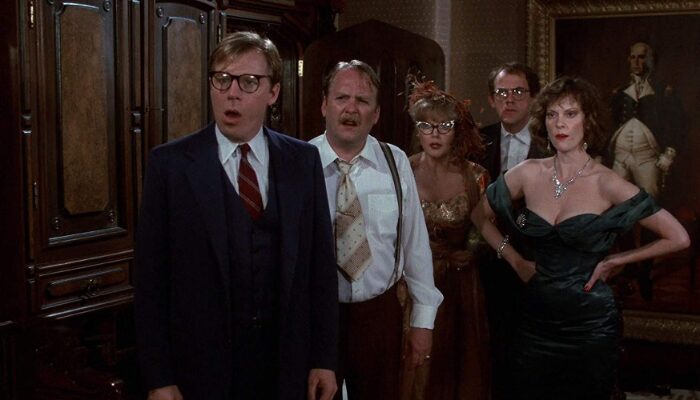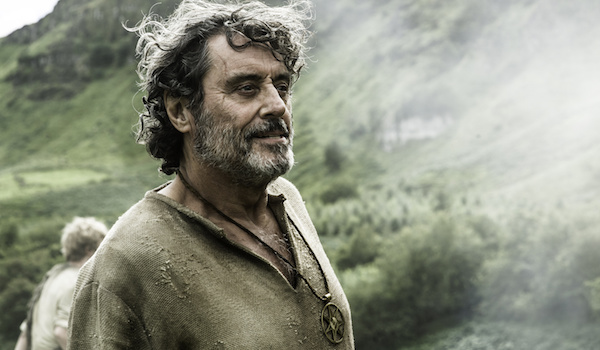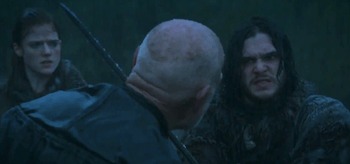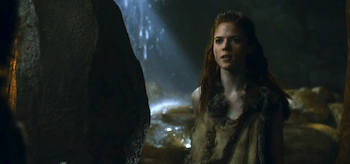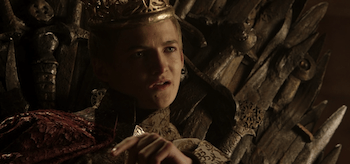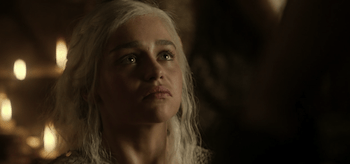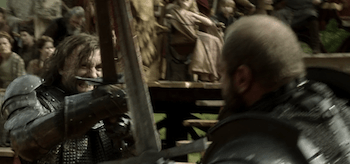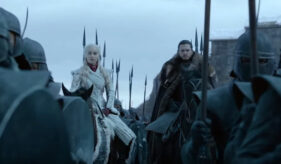TV Review: GAME OF THRONES: Season 6, Episode 7: The Broken Man [HBO]
Game of Thrones The Broken Man Review
HBO‘s Game of Thrones: Season 6, Episode 7: The Broken Man continued the storylines of many broken individuals. Some had been broken by adversaries against their will while others had submitted themselves to the breaking. Some had been rebuilt into a newer, better version. Characters like Ayra Stark (Maisie Williams). When the old croon approached Ayra in The Broken Man, the shrewd viewer knew exactly who the croon really was. When the stabbing took place, the viewer probably thought the scene would be revealed to be a dream (a common practice). Ayra Stark wasn’t really stabbed, the viewer told themselves. Arya Stark won’t be killed off. The first of those assumptions turned out to be false. The other assumption remains to be seen.
Why did Ayra wait to headbutt the old croon and push her away? Why didn’t Ayra’s extincts immediately kick in? Her reflexives should have been acute after all the training she had endured yet there was this soap opera-like TV pause before Ayra reacted. It made no sense for the character, the situation, or for the series. Why wait to react? Shock? So seeing Waif (Faye Marsay)’s face made Arya realize she was being attacked by an enemy? Didn’t the stabbing illuminate that fact? Oh, and where was Needle during this brief fracas?
It was a great narrative moment made terrible by writer Bryan Cogman who wanted the protagonist (and the audience) to know Waif had stabbed Ayra.
After the stabbing and the escape, Arya threw being incognito out the window by strolling through an open market place, bleeding-to-death. Why not use the less populated alleyways of Braavos to make her escape? Shock? Ayra had been in war zones previously. She’d previously hidden herself, her true identity, and her gender while traversing them. She knew how to do it. She also knew how to hide in plain sight from the Faceless Men. Looking for a medical savoir or a save haven amongst fruit and fish merchants was idiotic. Didn’t Ayra realize that the story of a girl fishing herself out of the water, bleeding from the gut while walking in front of everyone, might attract the attention of the Faceless Men, who were hunting her?
A bleeding, wet girl from the canal was an unusual occurrence and unusual news travels fast.
Sandor ‘The Hound’ Clegane (Rory McCann) being alive was no surprise thanks to published fan speculation for almost a year on the subject. Sandor’s self-evaluation in The Broken Man was a surprise, a good one, one that showed growth in the character. The title The Broken Man was a direct reference to Sandor (and others). Sandor’s body had been broken and healed but mentally he was at a cross-roads. All of this, the healing and Sandor’s boggle, was thanks to the presence of Septon Ray (Ian McShane). Ray was able to speak to Sandor soldier-to-soldier. Ray had committed atrocities akin to Sandor’s, atrocities that still haunted Ray to that day.
Sandor / Ray segment of The Broken Man could have been an entire episode in and of itself, like the stand-alone, character episodes of The Walking Dead.
Sandor and Ray represented two sides of the same argument. Ray’s side of the argument had been winning out until Sandor looked up at Ray’s swinging, lifeless body. Because of that particular death, the death of a good man who had saved Sandor and many others, The Hound was reborn again: spiteful, violent, angry, but this time, out for righteous revenge.
Olenna Tyrell (Diana Rigg)’s speech to Cersei Lannister (Lena Headey) about Cersei being surrounded by enemies, being alone, and having lost was one of best dialogue moments of the episode. The validity of those words was all over Cersei’s face. Cersei had no reply because she knew everyone of Olenna’s words to be true. Cersei will have to act quickly (the covert move that she has been cultivating for two or three episodes) before the noose completely tightens and the High Sparrow’s rule is absolute.
The Starks resembled Prince Viserys III Targaryen in The Broken Man, going from House to House in the north, begging for support, men, and arms. Some of these encounters were entertaining, none more so than the one involving Lyanna Mormont (Bella Ramsey). Lyanna represented adult responsibilities thrust upon a young person’s shoulders and those shoulders being strong enough to bear the weight. Lyanna also represented what Game of Thrones might have been like if the main teen characters had not had their ages upped when translated from book-to-TV yet had endured everything up to and including The Broken Man.
That show would have been extremely controversial because of the situations young actors and actresses were placed in but it would have also been far more entertaining e.g. as their characters physically and mentally matured, so would the actors and actresses portraying them. Look to Ayra and Sansa for examples of this.
The Yara Greyjoy (Gemma Whelan) / Theon Greyjoy (Alfie Allen) scene in The Broken Man was entertaining, featured story development, but not any character development, unless Yara’s lesbianism and Theon beginning down the road of self discovery (or re-self-discovery in his case) can be called character development. Yara’s plan was eye-brow raising but it should have been executed immediately. They heard their uncle Euron Greyjoy’s plan. He would already be building ships. The two of them had the current advantage but in a year that advantage would be lost.
Leave your thoughts on this Game of Thrones The Broken Man review and this episode below in the comments section. For more Game of Thrones photos, videos, and reviews, visit our Game of Thrones Google+ Page and our Game of Thrones Twitter Page. For more TV show reviews, visit our TV Show Review Page, our TV Show Review Twitter Page, our TV Show Review Facebook Page, our TV Show Review Google+ Page, subscribe to us by Email, “follow” us on Twitter, Tumblr, Google+, or “like” us on Facebook for quick updates.
Related Articles
FilmBook's Newsletter
Subscribe to FilmBook’s Daily Newsletter for the latest news!






